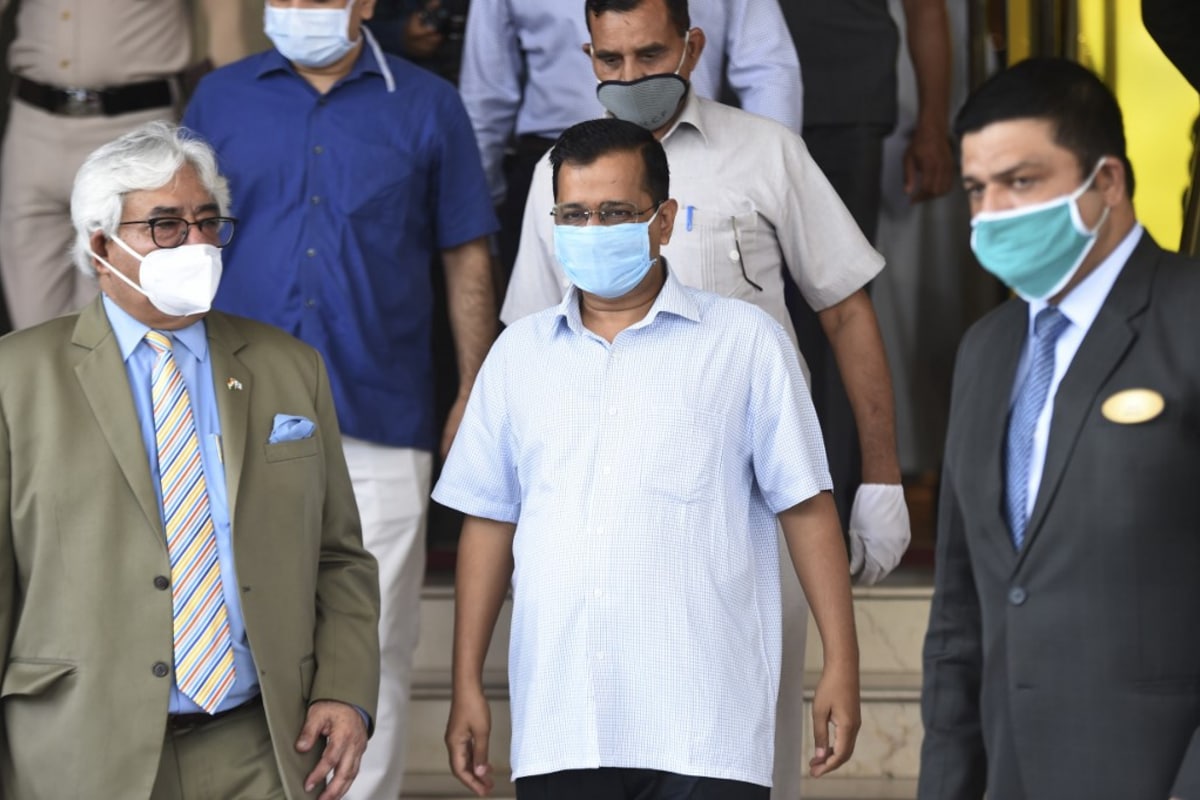Is AAP’s Rural Adventure Going to Pay?
Arvind Kejriwal’s non-confrontational, pro-governance, post-ideological approach has proved spectacularly successful in an urban setting. He has now chosen to step into unfamiliar terrain by directly opposing the Centre’s push towards agricultural reforms.
AAP’s rural adventure is all the more curious, given the direct clash of interests between Kejriwal’s urban constituency and rural audience.
Delhiites desperately want clean air, whereas field-burning by farmers send up toxic clouds, smothering the capital. The BJP is bound to ask why, given runaway air pollution, Kejriwal supports the dilution of the law against field-burning.
Also read: Gujarat Municipal Election Results 2021 LIVE Updates
Ahead of the Delhi municipal elections in 2022, it could well snowball into an electoral issue, with a recent study attributing 116,000 neonatal deaths in India to poor air quality — half of them due to PM 2.5 exposure (the main pollutant from field burning).
That said, AAP has twice defied the Modi wave, winning thumping majorities in the Assembly months after the BJP swept all seven Lok Sabha seats in the capital in 2015 and 2020. Its core strength lies in its urbanism, which enables it to rise above the politics of caste, class and community.
The urban poor and privileged alike approve of AAP’s focus on development, welfarism and ease of living. Freebies for the poor, heavy investment in education and health and doorstep delivery of government services, have yielded impressive electoral dividends for the party.
At the same time, Kejriwal has cannily side-stepped polarising discourses which might have alienated a large section of voters. For the most part, ‘Hanuman-bhakt’ Kejriwal maintained a dignified silence through the Shaheen Bagh protest against the Citizenship Amendment Act (CAA) and even after the North-East Delhi riots.
Shedding its confrontational and ideological approach has worked well for AAP, enabling voters to see Kejriwal and Modi as supplementary (‘Modi for PM, Arvind for CM’ as an AAP banner famously said) rather than oppositional. Kejriwal has been at pains to appear pragmatic and cooperative, rather than in his Muffler Man avatar.
But Kejriwal is now clearly irked by AAP’s inability to expand beyond Delhi. Only in Punjab, one of the more urbanised states in the country, was it able to make some headway. In 2014, it won an astonishing four Lok Sabha seats and a vote share of 24 per cent, but in 2019, it was reduced to one seat and 7.4 per cent of the popular vote.
AAP supporters in Punjab attribute the party’s initial success to its ideological neutrality and anti-corruption stance. Both exerted a powerful appeal on an electorate that had suffered through the most violent forms of identity politics. In this scenario, Kejriwal’s cardinal error was to hobnob with a former militant, thereby enabling the Congress to label him as pro-Khalistani.
AAP’s performance in the subsequent Assembly elections fell far short of expectations, although it managed to win 20 seats. Thereafter, it has been an inexorable downhill slide. In the recent elections to local bodies, it was all but wiped out.
The point being that identity politics is a slippery slope. Given its missteps in Punjab, AAP cannot afford to be ham-handed in its efforts to garner Jat (and Jat Sikh) votes in Haryana, Punjab and western Uttar Pradesh. Delhi’s middle-class has no stake in, or patience with, the farmers’ agitation. Whatever ‘sons of the soil’ emotional appeal the protest had, quickly dissipated after the events of January 26.
Besides, the campaign against the Farm Laws 2020 has been limited to western UP and the north-western States. It has had virtually no resonance in Purvanchal (eastern UP and Bihar), which accounts for a sizeable chunk of Delhi’s electorate.
AAP has successfully taken on the two national parties in Delhi, but in the neighbouring states where it hopes to gain traction, it must deal with identity-based regional forces like the Akali Dal and the Rashtriya Lok Dal, who practice a form of politics with which it is unfamiliar.
For Kejriwal, making headway in rural India while hanging on to his urban base will be a delicate balancing act, not quite as simple as ripping up the Farm Laws in the Delhi Assembly.

